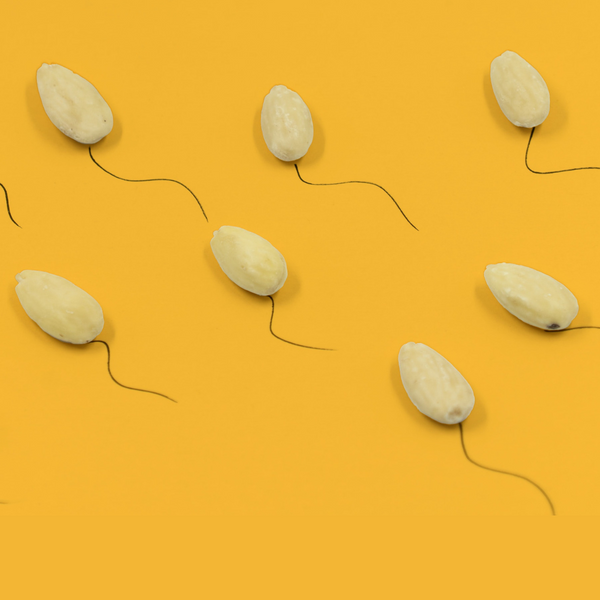
Article
Article
Posted on
When it comes to fertility, it’s easy to think that it’s something that only affects women.
But male reproductive health is just as important – and in the same way that female fertility declines with age, so does male fertility.
That’s why it’s important for every man to be aware of the factors that can impact their reproductive health.
Let’s start with sperm count
This is the number of sperm in a man’s ejaculate and is an important measure of his fertility.
Factors that can affect sperm count include lifestyle, health conditions, and medications. Lifestyle factors such as smoking, drinking alcohol, and using drugs can all have a negative impact on sperm counts. Health conditions such as obesity and diabetes can also reduce sperm count.
Certain medications, such as those used to treat depression, can also reduce sperm count. Additionally, environmental factors, such as exposure to pollutants and chemicals, can have a negative impact on sperm count.
Sperm motility is another important factor in male fertility
This is the ability of sperm to move and swim towards the egg.
Several factors can impact sperm motility, including infection, certain medications, lifestyle choices such as smoking and drinking, exposure to environmental toxins, and stress. Other medical conditions such as diabetes, varicocele, and hormonal imbalances can also contribute to a decrease in sperm motility. Additionally, age can be a factor, as sperm motility tends to decrease with age.
Sperm morphology is the shape and size of sperm.
Certain lifestyle factors and health conditions can have an impact on sperm morphology, including smoking, alcohol consumption, drug use, obesity, stress, and exposure to toxins. Additionally, certain health conditions such as diabetes can cause abnormal sperm morphology.
DNA fragmentation
DNA fragmentation is the breaking down of sperm DNA, which can make it difficult for sperm to penetrate the egg.
Sperm DNA fragmentation can be caused by a number of factors, including environmental toxins, poor nutrition, lifestyle choices (e.g. smoking, alcohol consumption, and drug use), age, infections, and medical treatments such as chemotherapy or radiation. In some cases, the cause of sperm DNA fragmentation is unknown.
The good news is that there are a number of things men can do to help maintain their reproductive health:
Nutrition
Nutrition is important for sperm health because it provides essential nutrients that are essential for sperm production and motility. A healthy diet that is rich in nutrients such as vitamins, minerals, fatty acids, and antioxidants helps to ensure a healthy sperm count and quality.
Additionally, the correct nutritional balance helps to protect sperm from damage and increases their chances of fertilizing an egg.
To learn more about supporting your sperm health through your diet, click here
Supplements
Supplements can be beneficial for sperm health by providing essential vitamins, minerals, and other nutrients that may be lacking in a person’s diet. These nutrients can help to promote healthy sperm production, motility, morphology, and overall sperm health.
Supplements can also help to reduce oxidative stress, which can damage sperm and reduce fertility, as well as support healthy hormone levels. Additionally, certain supplements can help to support a healthy lifestyle, such as by providing energy, reducing stress, and improving overall well-being.
We have a range of supplements formulated specifically for male sperm health. Learn more here
We also run free 1:1 product recommendation consultations. This is an opportunity to discuss your goals in a little more detail. We can recommend products suitable to you, as well as giving diet and lifestyle advice. If you would like to book a consultation, click here.
Hydration
Hydration is important for sperm health because it helps to keep the semen fluid, allowing sperm to move more freely and effectively. Hydration also helps to keep the sperm healthy by providing the necessary nutrients and minerals that are needed to maintain their health.
Additionally, hydration helps to flush out toxins and other impurities that can be harmful to sperm health.
Exercise
Exercise is good for sperm health because it helps to maintain a healthy weight and reduce stress, both of which can positively affect fertility. Exercise has also been shown to improve sperm quality, count, and motility. Additionally, exercise helps to maintain good circulation, which can help to improve sperm health by providing nutrients and oxygen to the reproductive organs.
Lifestyle
Changes such as quitting smoking, and excessive alcohol consumption can improve sperm health. Stress is also a key factor, so it’s important to find ways to manage it.
Ultimately, male fertility declines with age, just like female fertility. That’s why it’s important for men to be aware of the factors that can affect their reproductive health and to take steps to maintain it.

Article

Article

Article